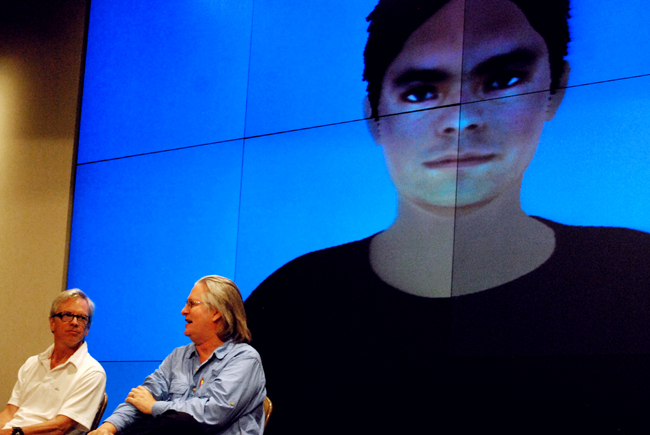Alan Turing would have been 100 years-old on June 23. Although he died in 1954, his work in computer science and artificial intelligence lives on today.
Three university scholars discussed Turing’s life and contributions to commemorate his centennial birthday Saturday, one of the many celebrations and tributes to Turing worldwide. Turing is considered one of the earliest pioneers of computer science and artificial intelligence and is renowned for his code-breaking work for the Allies during World War II. He also did research that many say laid the foundations of the modern computer. Robert King, UT linguistics professor emeritus, said Turing was the embodiment of many human qualities.
King led a discussion titled, “Alan Turing, Genius, Patriot, Victim,” one of three panels Saturday dedicated to Turing’s life and contributions. Others included “Language Translation and Code-Breaking” and “Turing’s Strange Seas of Thought.”
“He was a hero — when we honor him, we are honoring some of the very best qualities of the human race,” King said.
Turing died at age 41 from cyanide poisoning after being charged with committing “homosexual acts,” which was a crime in England at the time. Officials later ruled his death a suicide.
“Turing was an easy-going guy who would have been content with a few friends to work with in his studies, and time to practice his running, of which he was very talented,” King said. “He was an open homosexual who was condemned to take estrogen supplements as a ‘cure’ for his homosexuality — this led to his death.”
The event was hosted by the UT linguistics department in conjunction with the North American Summer School in Logic, Language, and Information program, which offers courses in areas such as logic and translation. Kevin Knight, computer science professor at the University of Southern California, demonstrated how Turing’s algorithms were used to understand encrypted messages, such as those used in World War II.
“One naturally wonders if the problem of translation could conceivably be treated as a problem in cryptography. When I look at an article in Russian, I say: ‘This is really written in English, but it has been coded in some strange symbols. I will now proceed to decode.’”
The symposium also featured “Turing Bot 2.0,” a computer simulation of Turing with the capability of answering questions similar to the iPhone’s Siri. When a member of the audience asked the animation a question, Turing Bot would sometimes answer directly and other times reply with an irrelevant comment. At one point, a member of the audience asked Turing Bot if it had a sister.
“Do you mean a clone?” responded Turing Bot.
Bruce Sterling, science fiction writer and UT alumnus, ended the event by discussing the Turing test, a test of a machine’s ability to exhibit intelligent behavior, and how it may have related to Turing himself. He also said although machines are obviously good for computing, artificial intelligence might never work.
“For can you have intelligence without having gender? Is your gender not part of your psyche?” he said.





















